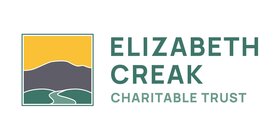
William Atkinson
I grew up in North Yorkshire having left school at 17, I came home to work on the family farm with both my parents Martin, Valerie and elder brother Robert being involved in the business. Although we are a mixed farm I’m able to concentrate my attention to the arable side of the business. Historically we’ve operated with a tight rotation on our 500 ha heavy clay land. This has inevitably led to a growing weed burden, although at very small percentages of infestation we could see this problem getting dramatically worse if not managed.
It was three years ago when travelling up and down the field while trying to ‘spot spray’ that I realised that no-matter how slow I travelled I couldn’t accurately ‘hit’ every target. I then started to study a means of making the system autonomous and after hours of research I decided the most practical way forward was to purchase a UAV with the view of mapping the weeds and exploring the possibilities of ‘Site Specific Weed Management’. One of the quickest benefits that become obvious was the financial one that came with this, unlike a disease that festers in each plant, weeds tend not to grow uniformly, however, we all tend to spray for a uniform infestation, costing large quantities of money at a time when the UK is having to compete with cheap imports from abroad. This may seem an obvious thing but grower’s confidence in both the recognition of weeds and moving away from the ‘blanket treatment’ is a hurdle to cross. It is my intention however, when travelling to look at every avenue with our weed management portfolio, for grower’s with very high levels of infestations becoming site specific may need a different approach to others who simply want a record of where to and not to spray. I also intend to futureproof my studies with an eye to robotic and possibly more mechanical means of weed control for the future.
None of this would of course happened without the help of my partner Kirsty, having being together 7 years now, she is consistently setting the bar higher for me to keep up with her and her career and this is what drives us to succeed. In 2016 we set up Aerial Ag Mapping with the view to one day being able to offer these services to other farmers. It is with great appreciation the my sponsor The Elizabeth Creak Charitable Trust (a Clyde Higgs Scholarship) for allowing me to do a Nuffield Scholarship and the whole family for supporting me in my travels
Elizabeth Creak Charitable Trust

Study Overview
Historically we’ve operated with a tight rotation on our 500 ha heavy clay land. This has inevitably led to a growing weed burden, although at very small percentages of infestation we could see this problem getting dramatically worse if not managed. It was three years ago when travelling up and down the field while trying to ‘spot spray’ that I realised that no-matter how slow I travelled I couldn’t accurately ‘hit’ every target. I then started to study a means of making the system autonomous and after hours of research I decided the most practical way forward was to purchase a UAV with the view of mapping the weeds and exploring the possibilities of ‘Site Specific Weed Management’. One of the quickest benefits that become obvious was the financial one that came with this, unlike a disease that festers in each plant, weeds tend not to grow uniformly, however, we all tend to spray for a uniform infestation, costing large quantities of money at a time when the UK is having to compete with cheap imports from abroad. This may seem an obvious thing but grower’s confidence in both the recognition of weeds and moving away from the ‘blanket treatment’ is a hurdle to cross. It is my intention however, when travelling to look at every avenue with our weed management portfolio, for grower’s with very high levels of infestations becoming site specific may need a different approach to others who simply want a record of where to and not to spray. I also intend to futureproof my studies with an eye to robotic and possibly more mechanical means of weed control for the future.